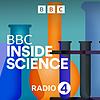
BBC Inside Science
BBC Radio 4
Categorias: Ciencia y Medicina
Escuchar el último episodio:
Lab-grown meat, cultivated meat, cultured meat, in-vitro meat - whatever you call it, the industry claims it could be a game changer. Not just economically, but for feeding the planet in a sustainable way.
But is it too good to be true? And will people even eat it?
In this special episode of Inside Science, we take a deep-dive into lab-grown meat; visiting a production facility to see how it's made, hearing about the nuanced perspectives of British farmers, asking if this new industry can learn from the failings of GM foods, and trying to figure out what the true environmental costs of entirely new way of producing food really is.
Presenter: Victoria Gill Producer: Ella Hubber Editor: Martin Smith Production Co-ordinator: Andrew Rhys Lewis
Episodios anteriores
-
933 - Is lab-grown meat the future of food?Thu, 17 Oct 2024
-
932 - The first civilian spacewalkThu, 10 Oct 2024
-
931 - The Grenfell claddingThu, 03 Oct 2024
-
930 - Predicting everythingThu, 26 Sep 2024
-
929 - Why aren’t we eating more insects?Thu, 19 Sep 2024
-
928 - Beavers of LondonThu, 12 Sep 2024
-
927 - Going for goldThu, 05 Sep 2024
-
926 - How much of a risk is space junk?Thu, 29 Aug 2024
-
925 - CERN’s Supercollider PlanThu, 22 Aug 2024
-
924 - Should Antarctica be off limits?Thu, 15 Aug 2024
-
923 - Wimbledon Grass ScienceThu, 08 Aug 2024
-
922 - Sun, sea... and scienceThu, 01 Aug 2024
-
921 - What makes an effective protest?Thu, 25 Jul 2024
-
920 - Taylor Swift SeismologyThu, 18 Jul 2024
-
919 - Are implanted brain chips the future?Thu, 11 Jul 2024
-
918 - How do we solve antibiotic resistance?Thu, 04 Jul 2024
-
917 - Why do we sleep?Thu, 27 Jun 2024
-
916 - Micro Nuclear ReactorsThu, 20 Jun 2024
-
915 - Is gene therapy the future?Thu, 13 Jun 2024
-
914 - Is treated sewage worse for the environment than raw?Thu, 06 Jun 2024
-
913 - Ugly animals and asteroid ApophisThu, 30 May 2024
-
912 - Can we get plastic waste under control?Thu, 23 May 2024
-
911 - Do we need a new model of cosmology?Thu, 16 May 2024
-
910 - Bird flu outbreak in cowsThu, 09 May 2024
-
909 - 200 years of dinosaur scienceThu, 02 May 2024
-
908 - Inside Your MicrobiomeThu, 25 Apr 2024
-
907 - Our Accidental UniverseThu, 18 Apr 2024
-
906 - World’s oldest forest fossilsThu, 11 Apr 2024
-
905 - Human Consciousness: Could a brain in a dish become sentient?Thu, 26 Apr 2018
-
904 - Plastic-eating bacteria, Foam mattresses for crops, The evolved life aquatic, The Double HelixThu, 19 Apr 2018
-
903 - Pesticides in British FarmingThu, 12 Apr 2018
-
902 - Stephen Hawking TributeThu, 05 Apr 2018
-
901 - Genes and education, John Goodenough, Caring bears and huntingThu, 29 Mar 2018
-
900 - Data ScrapingThu, 22 Mar 2018
-
899 - Buzz killThu, 15 Mar 2018
-
898 - Russian Spy PoisoningThu, 08 Mar 2018
-
897 - Weird Weather?Thu, 01 Mar 2018
-
896 - Science after BrexitThu, 22 Feb 2018
-
895 - Shipping air pollution; Cheddar Man; Millirobots in the body;Dog brain trainingThu, 15 Feb 2018
-
894 - Democracy in SpaceThu, 08 Feb 2018
-
893 - Scientists on TrialThu, 01 Feb 2018
-
892 - Did typhoid kill the Aztecs, DNA stored in Bitcoin, Glow-in-the-dark plants and levitating humansThu, 25 Jan 2018
-
891 - African swine fever, Oil spill update, CRISPR gene editing, Rat eradication in New Zealand, Chimp kin recognitionThu, 18 Jan 2018
-
890 - Sanchi oil tanker, Gut gas-monitoring pill and Chimpanzee portraitsThu, 11 Jan 2018
-
889 - Tabby's Star, Space 2018, Mosquito sounds, C diff and food additive linkThu, 04 Jan 2018
-
888 - Ancient DNA and Human EvolutionThu, 28 Dec 2017
-
887 - Antisense RNA therapy, Fossils vs Trump, Printing mini-kidneys, Electric eel powerThu, 21 Dec 2017
-
886 - The Future of Coral Reefs, Little Foot, Arthur C ClarkeThu, 14 Dec 2017
-
885 - Trophy hunting, Gene drives, Nuclear lightning, Peregrine falcons and dronesThu, 07 Dec 2017
-
884 - Prehistoric Strong Women, Semi-synthetic Life, Listener Feedback, Artificial SuperintelligenceThu, 30 Nov 2017







![4 Градуси [4 Degrees]](https://is1-ssl.mzstatic.com/image/thumb/Podcasts115/v4/2d/49/1a/2d491a26-24b5-717b-5c56-ffb62651a7a2/mza_1082343691804880947.jpg/150x150bb.jpg)















